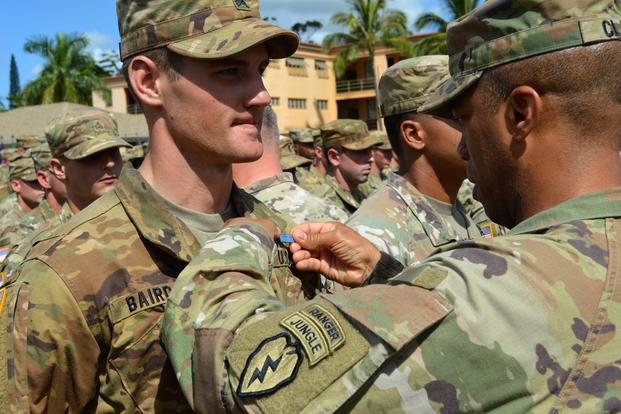Army officials at Fort Benning, Georgia, are rewriting the requirements infantry soldiers must meet when they test for the Expert Infantryman Badge.
Each year, infantry soldiers who have not earned the distinctive badge, consisting of a silver musket mounted on a blue field, must go through EIB testing, a series of 30 infantry tasks, ranging from land navigation to completing a 12-mile road march in under three hours.
Soon, EIB testing will feature more up-to-date tasks to reflect the modern battlefield, according to a recent Army news release.
Infantry officials recently conducted a modernized EIB pilot with multiple infantry soldiers, Master Sgt. Charles Evans, from the office of the Chief of the Infantry, said in the release.
"Their feedback was really essential to rolling out this new standard, making sure it was validated," Evans said. "Just working out all the kinks and making sure that all the tasks were applicable, realistic and up-to-date with the latest doctrine."
Many of the changes in the manual are designed to standardize options for units in how to conduct the testing, but "there will be significant changes to some of the tests themselves," according to the release.
"Indirect fire, move under fire, grenades, CPR and care under fire are all being reworked," the release states.
The results of the pilot will soon be put into an updated training manual for EIB testing.
"The reason we did this event was to make sure it wasn't just written from a single perspective, that it had feedback from all the different types of units across the Army," Evans said.
The Army also is updating infantry training for new recruits. Fort Benning just started a pilot program to extend One Station Unit Training for infantry from 14 to 22 weeks to ensure soldiers spend more time mastering infantry skills such as land navigation and fire and maneuver techniques.
-- Matthew Cox can be reached at matthew.cox@military.com.










